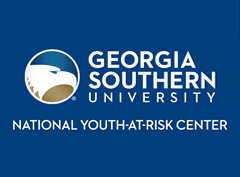Student Emotional Health: Exposing a Responsibility Gap
Location
Maverick
Focused Area
Improving School Climate for Youth-At-Risk
Relevance to Focused Area
Emerging sociological paradigms are intended to mitigate adverse structural conditions/circumstances of student life such as trauma, poverty, and violence in order to improve student access to education and improve achievement. School climate improvement is positioned as individual, behavioral, and cognitive: fix the individual versus fix the structural condition.
This project investigates the flaws in outcome based school climate initiatives and proposes a humanistic approach to improving school climate for youth-at-risk.
Primary Strand
Academic Achievement & School Leadership
Relevance to Primary Strand
The proposal calls for school leaders to reclaim the role of educational leader as intellectual and steward of educational ideology that vows to advance issues of social consciousness and the public, shared responsibility to invest in youth and their education. This project critically analyzes the normalization of cognitive behavioral approaches such as mindfulness, grit and resilience training as the primary school response to children exposed to poverty, violence or trauma.
Brief Program Description
Topic: Student emotional health of youth-at-risk is examined through the lens of a crisis of social consciousness, ultimately challenging the prevailing strategies grounded in cognitive behavioral approaches that individualize responsibility for violence, trauma and poverty. This project exposes a responsibility gap and calls activism of school leaders to address the structural conditions of youth-at-risk.
Target audience: School leaders/administrators, psychologists, social workers, adjustment counselors, community social service agency staff, politicians.
Summary
Emerging sociological paradigms are intended to mitigate adverse structural conditions/circumstances of student life such as trauma, poverty, and violence in order to improve student access to education and improve achievement. School climate improvement is positioned as individual, behavioral, and cognitive: fix the individual versus fix the structural condition. This project investigates the flaws in outcome based school climate initiatives and proposes a humanistic approach to improving school climate for youth-at-risk.
The proposal calls for school leaders to reclaim the role of educational leader as intellectual and steward of educational ideology that vows to advance issues of social consciousness and the public, shared responsibility to invest in youth and their education. This project critically analyzes the normalization of cognitive behavioral approaches such as mindfulness, grit and resilience training as the primary school response to children exposed to poverty, violence or trauma.
Student emotional health of youth-at-risk is examined through the lens of a crisis of social consciousness, ultimately challenging the prevailing strategies grounded in cognitive behavioral approaches that individualize responsibility for violence, trauma and poverty. This project exposes a responsibility gap and calls activism of school leaders to address the structural conditions of youth-at-risk.
Participants will work in teams to test/analyze their professional or school approaches to mitigate adverse conditions that impact student emotional health.
Evidence
The recent educationalizing of student emotional health is a microcosm of the educationalization of social problems theorized by David Labaree (2008). As a political economy of social disinvestment and austerity politics subjugates schools as the solution to social problems, education reform normalizes behavioral approaches to a crisis of anxiety, depression, and student stress.
Carter and Welner (2013) describe the opportunity gap in our current system of schooling in the U.S. metaphorically as students running in the proverbial race as if in a track meet with hurdles and obstacles for some and a lane free from hurdles and obstacles for others.
Henry Giroux (2013) sees an economic, political and cultural gap between political leaders and the citizens they represent. He claims the education deficit is connected to a moral, political and economic deficit.
C. Wright Mills (2000) champions the need for discourse that translates private troubles into public concerns.
Format
Individual Presentation
Biographical Sketch
1. Teresa Sullivan-Cruz
High School Principal for 12 years
Social Studies Teacher for 18 years
Ph.D. in Educational Leadership and Policy Studies with a concentration in Social Justice, University of Massachusetts at Dartmouth
Adjunct Instructor for Massachusetts School Principals' Association
Administrative Mentor for Massachusetts School Principal Licensure MA-PAL
2. Dympna M. Thomas
Assistant Superintendent of Schools and Director or Pupil Personnel
Elementary School Principal
Ph.D. Educational Leadership, Boston College
Start Date
10-27-2017 2:00 PM
End Date
10-27-2017 3:15 PM
Recommended Citation
Sullivan-Cruz, Teresa L. and Thomas, Dympna M., "Student Emotional Health: Exposing a Responsibility Gap" (2017). National Youth-At-Risk Conference, West (2015-2017). 26.
https://digitalcommons.georgiasouthern.edu/nyar_vegas/2017/2017/26
Student Emotional Health: Exposing a Responsibility Gap
Maverick
Topic: Student emotional health of youth-at-risk is examined through the lens of a crisis of social consciousness, ultimately challenging the prevailing strategies grounded in cognitive behavioral approaches that individualize responsibility for violence, trauma and poverty. This project exposes a responsibility gap and calls activism of school leaders to address the structural conditions of youth-at-risk.
Target audience: School leaders/administrators, psychologists, social workers, adjustment counselors, community social service agency staff, politicians.
